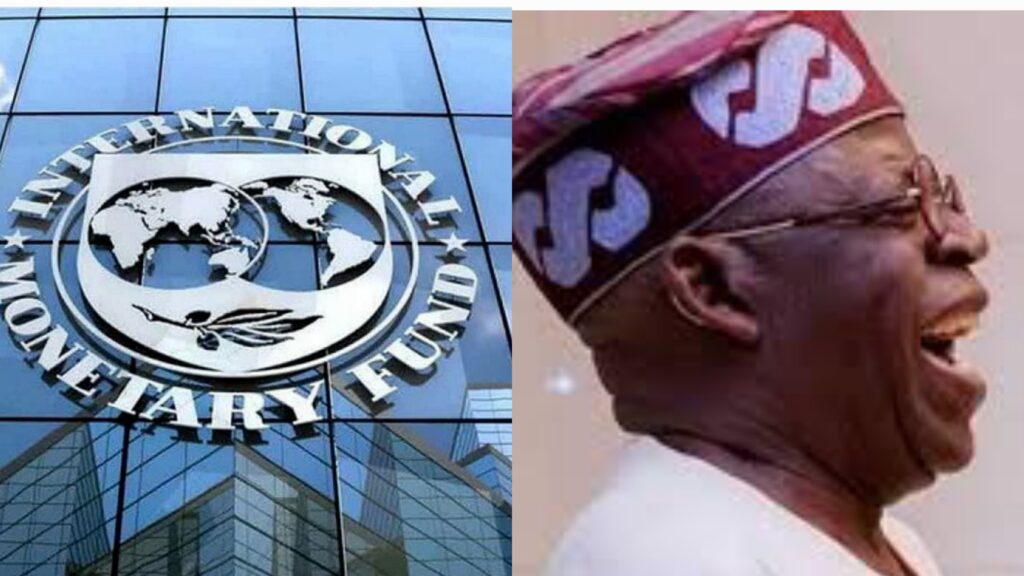
The International Monetary Fund (IMF) has clarified that it was not behind the removal of fuel subsidy in Nigeria, and acknowledged the impact of economic hardship on Nigerians.
The IMF has been a subject of criticism over Nigeria’s recent fiscal reforms, which have led to rising inflation and have plunged many citizens into abject poverty.
“The decision was a domestic one. We don’t have programmes in Nigeria. Our role is limited to regular dialogue, as we have with other nations like Japan or the UK,” IMF’s African Region Director Abebe Selassie said at a press conference during the IMF and World Bank Annual Meetings in Washington DC.
Mr. Selassie acknowledged the IMF’s guidance on public resource management, noting that, while Nigeria needs substantial investment in infrastructure, healthcare, and education, the government’s choices regarding subsidy removal reflect its long-term strategy for sustainable economic growth.
“Ultimately, these are profound domestic and political decisions that the government had to make,” he said, expressing that the IMF sees these choices as steps toward greater public resource efficiency.
Admitting the economic impact on Nigerians, Mr. Selassie encouraged the Nigerian government to roll out social investments to help vulnerable groups manage the transition.
“We recognize the significant social costs involved,” he noted, adding: “The government can mitigate these by expanding social protection for the most vulnerable.”
NIGERIA ECONOMY CRISIS
Two days ago, a white man was filmed on the street of Lagos, distributing loaves of bread to residents who queued for the free staple, in a development that highlights the extent to which citizens were battered by hunger amid the nation’s worst cost-of-living crisis under President Bola Tinubu-led Nigerian government.
Nigeria’s headline inflation rate in September 2024 rose to 32.70%, up from 32.15% in August 2024, marking a 0.55% increase month-on-month, according to the National Bureau of Statistics (NBS).
The country is facing its worst economic crisis in decades, with skyrocketing inflation, the national currency in free-fall and millions of people struggling to buy food. Only two years ago Africa’s biggest economy, Nigeria is projected to drop to fourth place this year.
The pain is widespread. Unions strike to protest salaries of around $20 a month. People die in stampedes, desperate for free sacks of rice. Hospitals are overrun with women wracked by spasms from calcium deficiencies.
Although, Tinubu increased the minimum wage — after strike action and months-long negotiations with labour unions — from ₦30,000 to ₦70,000, his government has increased spending for officials at a time of nationwide starvation.
For workers earning the new ₦70,000, or $43 per month minimum wage, capricious inflation and naira value have inflicted too much damage for the changes to make any difference in their lives.
The crisis is largely believed to be rooted in two major changes implemented by Tinubu, who took over office 17 months ago; the partial removal of fuel subsidies and the floating of the currency, which together have caused major price rises.
Over a year after Tinubu declared end to fuel subsidy, the fuel price which had been hiked a few times during his first year in office, officially hit the ₦1,000 mark in early October, as oil marketers including state-run Nigerian National Petroleum Corporation (NNPC) Limited, adjusted their pumps in Abuja to ₦1,030 per litre and those in Lagos State did to ₦998, compounding the woes of the citizens who power their vehicles, and generating sets with petrol, no thanks to decades-long epileptic electricity supply.
This follows after the NNPC Limited withdrew from being middleman between the oil marketers and the Aliko Dangote-owned refinery for the supply of fuel.
Dangote had also urged the president to fully hand off fuel subsidy.
In recent weeks, the nation has suffered an acute fuel scarcity that led some outlets with fuel to sell at exorbitant prices above ₦1,100 per litre while black market prices exceeded ₦1,300.
A nation of entrepreneurs, Nigeria’s more than 200 million citizens are skilled at managing in tough circumstances, without the services states usually provide. They generate their own electricity and source their own water. They take up arms and defend their communities when the armed forces cannot. They negotiate with armed kidnappers when family members are abducted.
But right now, their resourcefulness is being stretched to the limit.
Police and other security agencies clamped down on protests after citizens frustrated by the high cost of living repeatedly took to the streets, demanding that the government do more to help the vulnerable.
In August, Amnesty International accused Nigerian security forces of killing at least 21 protesters during a week of economic hardship protests.
Security forces denied responsibility for deaths during the protests.
